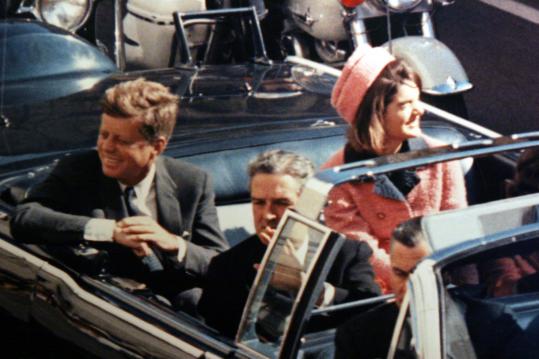The CIA, the Pentagon, and the ‘Peace President’
by Andrew Gavin Marshall, Global Research, Nov. 23, 2010
Just 47 years ago, on November 22, 1963, President John F. Kennedy was assassinated in Dallas, Texas. This marked the turning of the American National Security State apparatus against its own leadership. After having overthrown, assassinated leaders, and orchestrated coups around the world, the moment its growing power was threatened by the civilian leadership in America, the apparatus of empire came home to roost.
The National Security State
The apparatus of the National Security State, largely established in the National Security Act of 1947, laid the foundations for the extension of American hegemony around the globe. In short, the Act laid the foundations for the apparatus of the American Empire. The National Security Act created the National Security Council (NSC) and position of National Security Adviser, as well as the Joint Chiefs of Staff (JSC) as the Pentagon high command of military leaders, and of course, the CIA.
The first major foreign operation carried out by the National Security State, or rather, the “secret government,” was the overthrowing of a democratically elected government in Iran. In 1952, the British were concerned at the efforts of Iran’s new Prime Minister Mohommad Mossadeq, in nationalizing Iran’s oil industry, taking the monopoly away from British Petroleum. So the British intelligence, the SIS, proposed to the Americans a joint operation, and the CIA obliged.
In early 1953, with the ascendancy of the Eisenhower administration, two brothers, the Dulles brothers, came to dominate foreign policy decisions. John Foster Dulles became Secretary of State while his brother, Allen Dulles, became director of the CIA. Allen Dulles was a founding member of the Council on Foreign Relations and was a director of the CFR from 1927 to 1969,[1] while John Foster Dulles had joined the Council in the 1930s, and was a career diplomat and Wall Street lawyer.[2] In 1953, the Dulles brothers both worked and lobbied Eisenhower for the removal of Mossadeq from Iran,[3] and subsequently, the CIA and SIS worked together to enact the plan and overthrew the Iranian government.[4]
On January 17, 1961, President Dwight D. Eisenhower gave his farewell address to the nation in which he warned America and indeed the world about the growing influence of the National Security State in what he referred to as the “military-industrial complex”:
“Until the latest of our world conflicts, the United States had no armaments industry. American makers of plowshares could, with time and as required, make swords as well. But now we can no longer risk emergency improvisation of national defense; we have been compelled to create a permanent armaments industry of vast proportions. Added to this, three and a half million men and women are directly engaged in the defense establishment. We annually spend on military security more than the net income of all United States corporations.
This conjunction of an immense military establishment and a large arms industry is new in the American experience. The total influence — economic, political, even spiritual — is felt in every city, every State house, every office of the Federal government. We recognize the imperative need for this development. Yet we must not fail to comprehend its grave implications. Our toil, resources and livelihood are all involved; so is the very structure of our society.
In the councils of government, we must guard against the acquisition of unwarranted influence, whether sought or unsought, by the military-industrial complex. The potential for the disastrous rise of misplaced power exists and will persist.
We must never let the weight of this combination endanger our liberties or democratic processes. We should take nothing for granted. Only an alert and knowledgeable citizenry can compel the proper meshing of the huge industrial and military machinery of defense with our peaceful methods and goals, so that security and liberty may prosper together.”[5]
Eisenhower was speaking from the point of view of having first-hand knowledge of this ‘influence’ in the corridors of power, himself as President being unable to challenge it, and unable to do so simply in the first decade of the American Empire. He was warning against the influence of the interconnected relationship and organized power of the military, government, and industry, in that the growing influence of this ‘complex’ was so vast that it threatened to take over the government and subvert democracy itself. It was the functions of this complex that saw profit created through war and empire, and thus, there was a constant drive and impetus towards pursuing empire and resorting to war. If you build a massive military structure, you are going to use it; if it is profitable to go to war, you will go to war.



1 comment for “The National Security State and the Assassination of JFK”